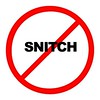How the study worked:
In the psychology lab, participants engaged in a computer exercise that ended in a simulated crash of the computer and a purported loss of data. Data was analyzed from 129 participants who were paired with confederates of the researchers. After the crash, confederates either denied or “admitted” that they had caused the crash.
Some participants were given an incentive to tell whether the confederate had admitted to causing the problem. They were told that the faculty adviser would be informed and that the person who had caused the problem would be required to come back for a second session.
Participants were asked to sign a statement affirming a secondary confession of guilt. That is, they stated that the other person – the confederate – had admitted crashing the computer. Not surprisingly, participants were more likely to sign when the confederate had admitted to causing the crash. In these cases, the offer of an incentive did not increase the rate of signing. In fact, with an incentive, the rate of signing increased only when the confederate had denied causing the crash. In other words, an incentive increased the rate of false rather than true secondary confessions.
Not only did incentives increase the rate of false secondary confessions, but also participants were less likely “to see freely admitted misdeeds as unintentional.” That is, some of those who signed statements also amended the statements, excusing the crash as a mistake due to external factors such as the speed of the test. The researchers found that offering an incentive for secondary confessions “eliminated this ‘honest mistake’ pattern.” (my emphasis)
The study authors' suggestions:
“The concern is partly based on confessions being assumed to be the end-all and be-all of trial evidence, when at least in the case of secondary confessions they should be treated as hearsay,” Swanner said.
She and Beike suggested several safeguards, including video recordings of all interviews and interrogations of informants and suspects as well as pretrial hearings and expert testimony to allow jurors to better assess the validity of secondary confessions entered as evidence.
“It is essential for jurors, prosecutors and judges to be informed about the potentially biasing nature of incentives to confess,” they concluded. “Snitches may indeed lie or come to believe a falsehood about another to be the truth. Jurors must be able to consider this possibility as they make their verdicts.”




